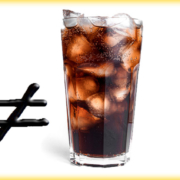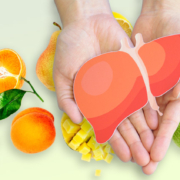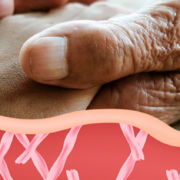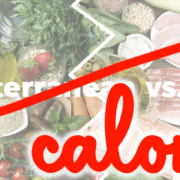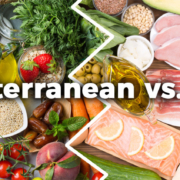Dr. Chet’s Health Memos
 If it’s in the health news today, I’ll be writing about it as soon as I read the research, both old and new. With my email Health Memos, you’ll know more about making lifestyle choices that will help you get and keep good health. These free, concise updates on health are emailed to subscribers twice a week. Subscribe today and get a free MP3, in English or Spanish, of Dr. Chet’s Top Ten Tips—Small Changes for a Healthier Life.
If it’s in the health news today, I’ll be writing about it as soon as I read the research, both old and new. With my email Health Memos, you’ll know more about making lifestyle choices that will help you get and keep good health. These free, concise updates on health are emailed to subscribers twice a week. Subscribe today and get a free MP3, in English or Spanish, of Dr. Chet’s Top Ten Tips—Small Changes for a Healthier Life.
Teaching Doctors About Supplements
In late May, the Food and Drug Administration (FDA) in partnership with the American Medical Association (AMA) released two short videos to teach physicians about dietary supplements, plus a third aimed at consumers. The first video spent time defining and explaining what a dietary supplement is, the delivery systems companies use such as tablets, gummies, […]
Myths Busted: Eat Your Fruit
If you’ve watched the video, you know Dr. Berry gave three myths of the sugars in fruit. We addressed Myth One and Myth Two in Tuesday’s Memo. Today let’s examine Myth Three, and then consider whether fruit will cause non-alcoholic fatty liver disease. Myth Three: Fiber, Vitamins, Minerals, and Phytonutrients Aren’t Important This myth is […]
Fruit and Fatty Liver Disease
Non-alcoholic fatty liver disease (NAFLD) is on the rise in the U.S. and around the world. Estimates are by 2030, NAFLD will be the primary cause of liver transplants in the world. NAFLD is caused by obesity; associated conditions such as type 2 diabetes and metabolic syndrome are contributing factors. But does fruit intake contribute […]
Cleaning Up and Moving On
I look around my desk, and what used to be a dumping ground for unopened mail, notes written on legal pads, sticky notes, and the backs of envelopes, is almost pristine. It was time to clean up and move on. I’m prepared to do the same thing with my Memo list of subscribers; next month […]
Purge Week
An Insider sent me an interesting link about meat—more specifically, the red liquid that’s often at the bottom of the plastic bag when you bring home meat from the grocery store or the butcher. I’ll bet you thought it was blood because that’s what it looks like, but that would be incorrect. It’s called purge […]
The Facts on Collagen Supplementation
After covering collagen basics on Tuesday, two questions remain. Are collagen supplements absorbed or are they digested just like any other protein? Second, does research support the use of collagen supplementation to improve skin quality? Let’s take a look. Collagen Absorption The data on collagen absorption is sparse. In almost every study, dipeptides or tripeptides […]
Are Collagen Supplements Effective?
I spent the past weekend with a few thousand of my closest friends, some in person and others via live broadcast; that always means I get some good questions, including one about collagen I couldn’t answer. A healthcare professional had told one attendee that collagen supplements were broken down into individual amino acids before being […]
It’s Still All About the Calories
The keto vs. Mediterranean diet study was interesting for a variety of reasons. The researchers deserve a lot of credit for even attempting to try a study of this magnitude; 40 subjects may not seem like a lot, but to provide food via delivery together with instructions on preparation is very expensive and labor intensive. […]
Face-Off: Mediterranean vs. Keto
Last week ended with the publication of an interesting study on two popular diets, Mediterranean and ketogenic, and their potential benefits for people with elevated HbA1c levels; HbA1c is a blood test that measures your average blood sugar levels over the past three months. I use the word “diet” as a description of the type […]
Citric Acid: Stone Killer?
Increasing fluid intake can reduce the risk of developing stones of all types: kidney stones, gall stones, bladder stones, or uric acid crystals. But there’s one more thing you could do to reduce the risk—add some citric acid to the fluids you drink. While the research on using a form of pharmaceutical is not clear […]


